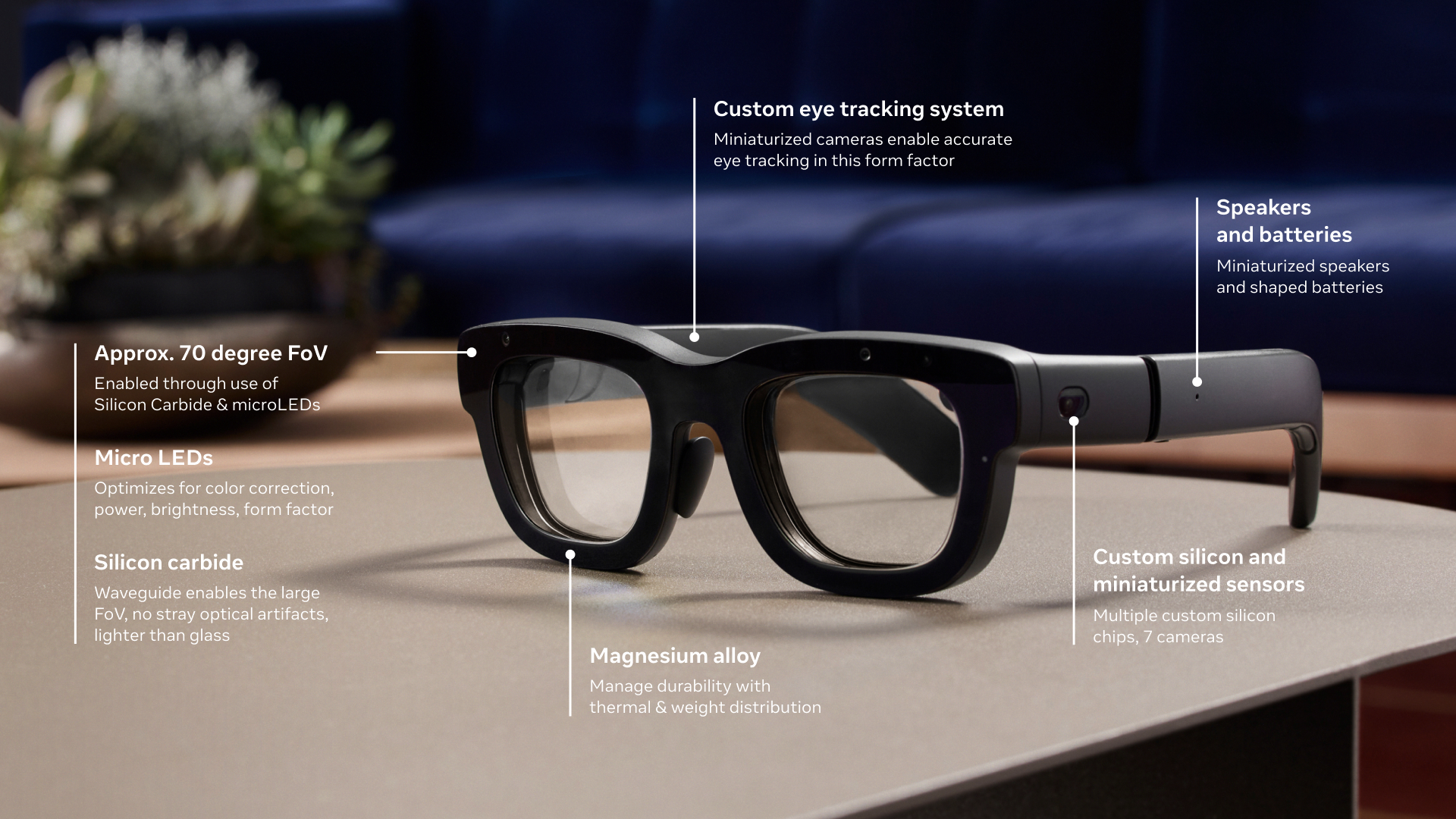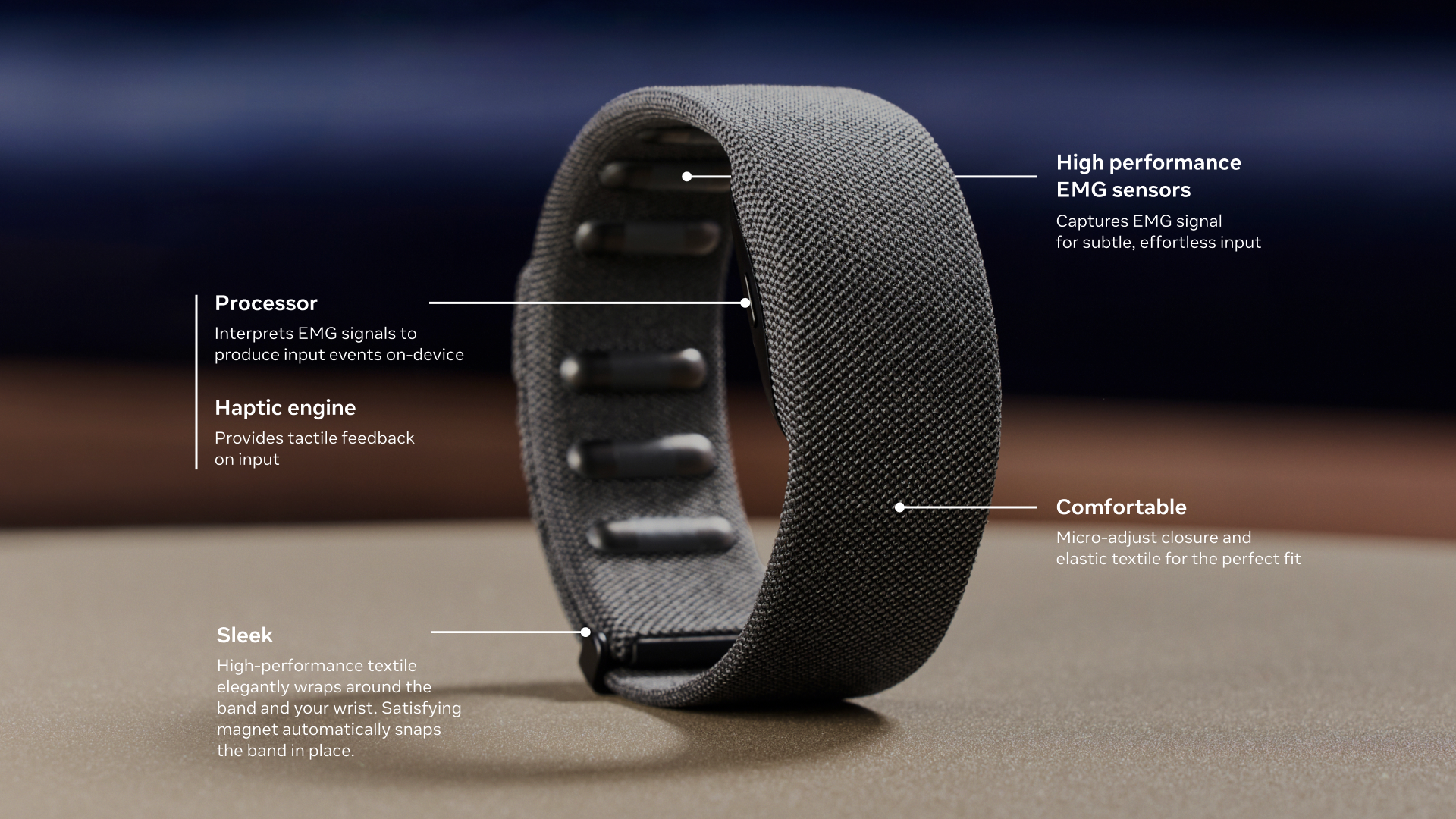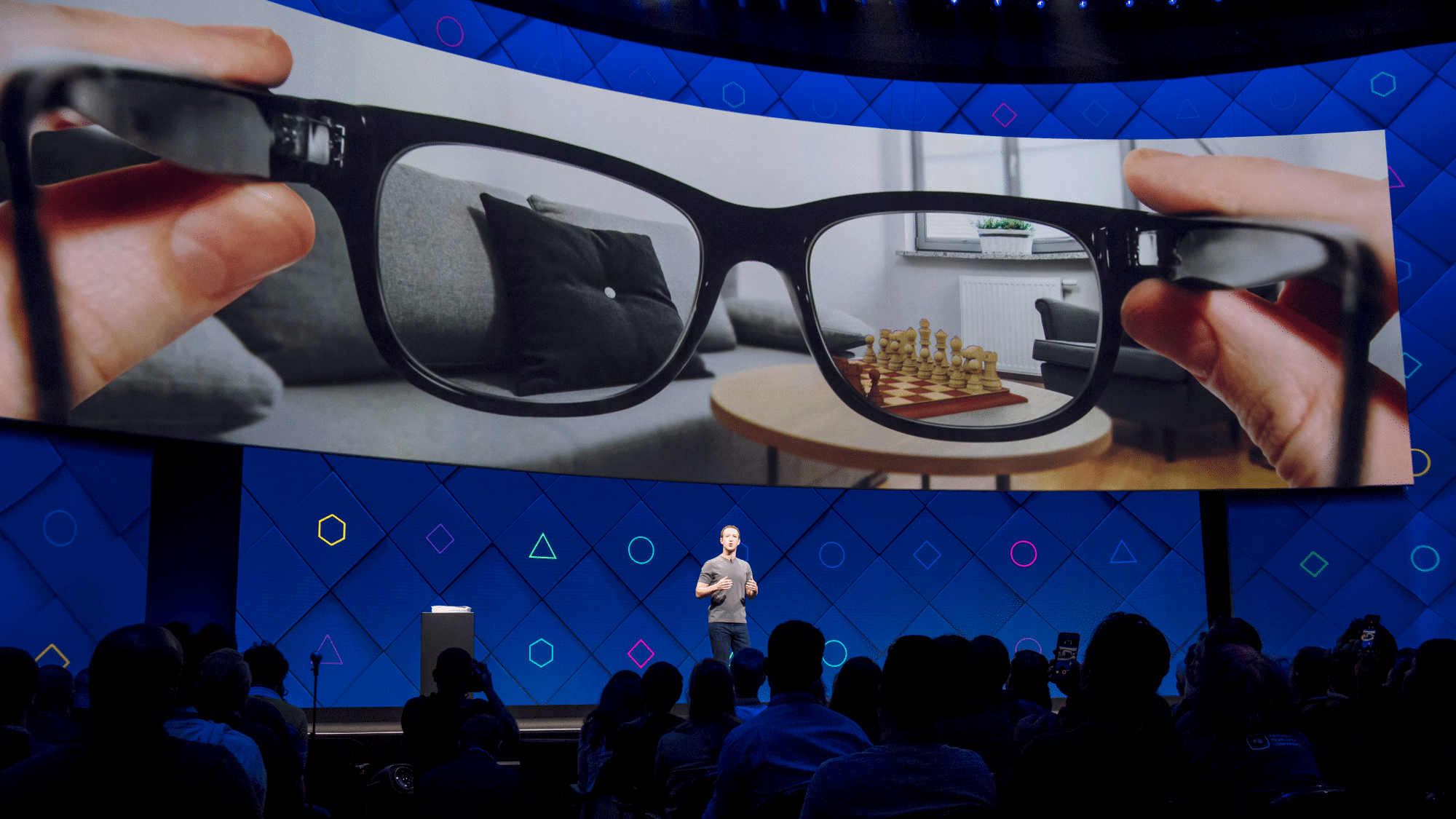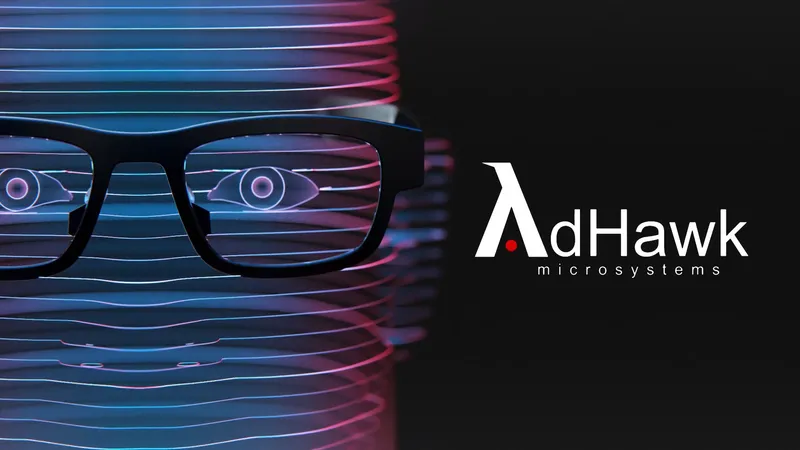Meta is showing off integrated prototype AR glasses at Connect with a field of view that's remarkable given their form factor.
Meta has been working on AR glasses for ten years now, spending tens of billions of dollars on the project that Mark Zuckerberg hopes will one day deliver him an "iPhone moment".
The company claims these first AR glasses, codenamed Orion, have a field of view of 70 degrees diagonal. For comparison, Xreal glasses and the new Snap Spectacles have a field of view of 46 degrees, and HoloLens 2 has a field of view of 52 degrees.
| Form Factor | Field Of View | Availability | |
| RayNeo X2 | Thick Glasses (120g) |
25° | Product ($850) |
| HoloLens 1 | Headset | 35° | Discontinued ($3000) |
| Snap Spectacles (2024) |
Bulky Glasses (226g) |
46° | Developers ($99/month) |
| HoloLens 2 | Headset | 52° | Product ($3500) |
| Magic Leap 2 | Bulky Goggles (260g) |
70° | Product ($3300) |
| Meta Orion | Thick Glasses (98g) |
70° | Meta Internal |
The Magic Leap 2 headset also has a 70-degree diagonal field of view, but Meta's Orion represents the first time we've seen this in a (fully integrated) device with true glasses form factor. And Meta says it weighs just 98 grams.
However, the Orion glasses won't be sold as a product, as Meta admits each costs on the order of $10,000 to produce. The company says Orion will be used as a demonstrator and internal development kit, describing it as "a time machine that lets us live in the future".
Silicon Carbide Lenses & MicroLED Projectors
Orion achieves this remarkable field of view despite its form factor by using silicon carbide lenses, instead of glass, which have a "really high" index of refraction, as well as by using advanced waveguides with "complex nano-scale 3D structures".

Orion uses microLED (μLED) projectors, which are smaller and more power efficient than the LCoS projectors used in the new Snap Spectacles, enabling a slimmer design. Meta says achieving Orion's design also required packing components "down to a fraction of a millimeter", with "optical precision at 1/10 the thickness of a human hair".
MicroLED is still incredibly hard to manufacture with high resolution though. The angular resolution of Orion is just 13 pixels per degree, around the same as the original 2016 Oculus Rift.
Split Wireless Compute Architecture
Another reason Orion is slimmer than the new Snap Spectacles is that it offloads the heaviest compute tasks to a wireless puck that fits in your pocket.
Positional tracking, hand tracking, eye tracking, and "specialized AR world locking graphics algorithms" run on "specialized custom silicon" in Orion itself, and Meta says its lightweight magnesium frame efficiently dissipates the heat these chips generate.
Meta says Orion has a battery life of 2-3 hours.

Meanwhile app logic, including rendering and general processing, run on the compute puck, with rendered frames streamed wirelessly to the glasses.
EMG Wristband Input Device
While Orion has onboard hand tracking, eye tracking, and speech recognition, it also leverages a wristband that uses a technology called electromyography (EMG) that can track minute finger movements by sensing muscle activation in your wrist.
Meta has been working on this wristband since at least 2019, when it acquired a startup called CTRL Labs.

Meta says that paired with Orion, the wristband "lets you swipe, click, and scroll while keeping your arm resting comfortably by your side", with no need for your hands to be within view of the glasses cameras.
AR Content
Meta says Orion's current key use cases are Meta AI, AR games, hands-free video calls, and virtual screens.
While Meta AI can only talk to you on Ray-Ban Meta glasses, on Orion Meta AI can "help you through a task with visual guidance".
And while you can already share your view in WhatsApp and Messenger calls on Ray-Ban Meta glasses, on Orion you can also see the other person's camera via a fixed virtual screen.
But Orion's display and AR capabilities also let you do things you simply can't on basic smart glasses.
That includes playing true AR games, where virtual objects appear in your space, as well as opening up to three floating browser windows. The browser includes support for watching YouTube videos.
But No Product - Yet
As previously mentioned, Meta confirmed that Orion won't be sold as a product as it's prohibitively expensive to produce.
But the company does say we'll see "new devices from us in the next few years that build on our R&D efforts with Orion". It says its primary focus is now on figuring out how to build AR glasses affordably at scale, as well as improving the display quality and making the form factor even smaller.
We'll keep a close eye on Meta in coming years for any signs of its first AR glasses product, though reports suggest it will have inferior specs to Orion.
































